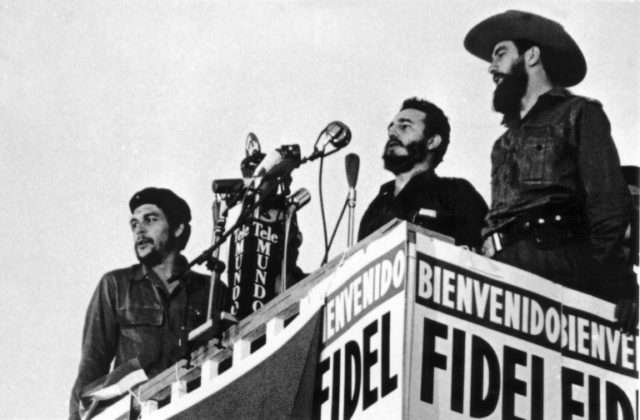Cuba’s second-in-command, President Miguel Díaz-Canel, delivered remarks this weekend assuring Cubans that the government does not “need a lot of resources” to advance the Revolution – a particularly alarming comment in a year during which the defining characteristic of the holiday season has been an unresolved bread shortage.
Cuba will observe the 60th anniversary of its Communist Revolution on midnight tonight when dictator Fulgenio Batista fled the country during a New Year’s Eve party and left it in the hands of Fidel Castro. While Castro and his small band of rural murderers did little to weaken and overthrow the Batista regime – urban revolutionaries like Frank País and José Antonio Echeverría did most of the organizing work while Castro and friends hid in the Sierra Maestra mountains – they became the last revolutionary group standing after the aforementioned leaders’ deaths by the time Batista fled. Castro took over vowing not to impose a Marxist regime until fully embracing communism in 1961, then engaging in a host of human rights abuses to eliminate his enemies. Firing squads, extermination camps, and “disappearances” all became key components of the Revolution’s political toolbox.
Díaz-Canel’s job largely consists of making public appearances while Raúl Castro – who outranks Díaz-Canel has commander-in-chief and head of the Communist Party – runs the country. As such, he spent much of his weekend speaking on the Revolution’s anniversary and posting hyperbolic statements against capitalism on his social media accounts. On Twitter last week, Díaz-Canel called the Revolution “invincible, growing, and persevering.”
“2018 has been a year of arduous work for our people who, with the courage and nobility that characterizes them, continued at the forefront of all the battles fought in these last twelve months,” he wrote.
Díaz-Canel also took time to insult pro-democracy dissidents and Cuban refugees, referring to them as “the ill-bred born by mistake in Cuba, who can be worse than the attacking enemy.”
Speaking to his council of ministers on Saturday, Díaz-Canel focused his energy on warning that 2019 may be an even more difficult economic year for the communist dictatorship, but promising both “challenges and victories.”
According to Granma, the official newspaper of the Cuban Communist Party, Díaz-Canel urged ministers to engage in “austerity” when “maintaining a clean and careful image.”
“Not a lot of resources are needed for [government] entities to have a better appearance and the directives for this must be demanded,” he stated, emphasizing the importance of an updated online presence for the Cuban regime in particular.
The Cuban regime will apparently not cut back on spending for lavish Revolution anniversary parties. Granma listed a wide variety of dance parties hosted by the government for Monday and Tuesday, all featuring regime-approved musical acts, throughout the country. The showcase follows the imposition of “Decree 349,” which bans Cubans from engaging in the creation of any art, public or private, without the explicit approval of the Ministry of Culture.
Díaz-Canel’s warning against excessive spending also follows similarly subdued comments following the debut of Cuba’s 2019 economic plan two weeks ago. At the time, the president called the plan “objective and realist” and ordered regular Cubans to “overcome little bits of every problem every day.” He also explicitly blamed the United States for Cuba’s currently dire economic state, alleging that the Trump administration’s policy of helping Americans avoid inadvertently funding the repressive Cuban military had significantly hurt the Cuban economy, almost entirely controlled by military leaders.
Cuba has implemented a food ration system for decades, a hallmark of the Revolution. Even unstamped ration booklets failed to feed families this month, however, as a sudden shortage of wheat overtook the country. The Cuban regime’s agricultural center regularly fails to harvest the necessary crops to feed the country, a problem that Havana typically resolves by importing key items like grain. This year, the regime created a 40,000-ton flour deficit by failing to import the necessary amount, expecting a much larger crop of domestic flour than what government farms actually harvested. Government officials could not blame Washington for this shortage, instead claiming that key mills throughout the country had malfunctioned and they did not have the ability to purchase repair parts in time.
The result of this shortage has been the establishment of hours-long lines around the country by hungry Cubans seeking to buy bread throughout December. Most recently, on Saturday, locals in an unnamed province uploaded a video to Facebook of a particularly unruly bread line, showing dozens of Cubans surrounding a bakery demanding to know if it was still stocking bread, but receiving no answers.

COMMENTS
Please let us know if you're having issues with commenting.